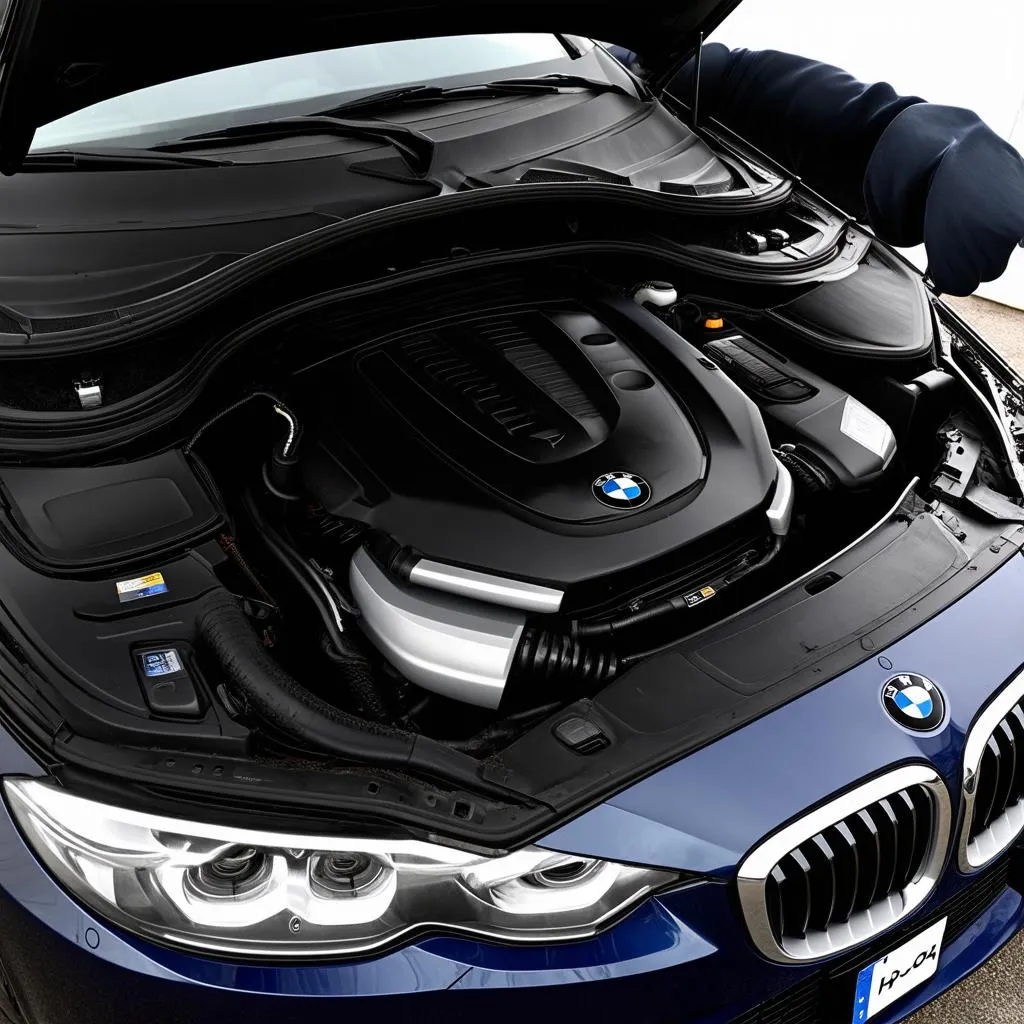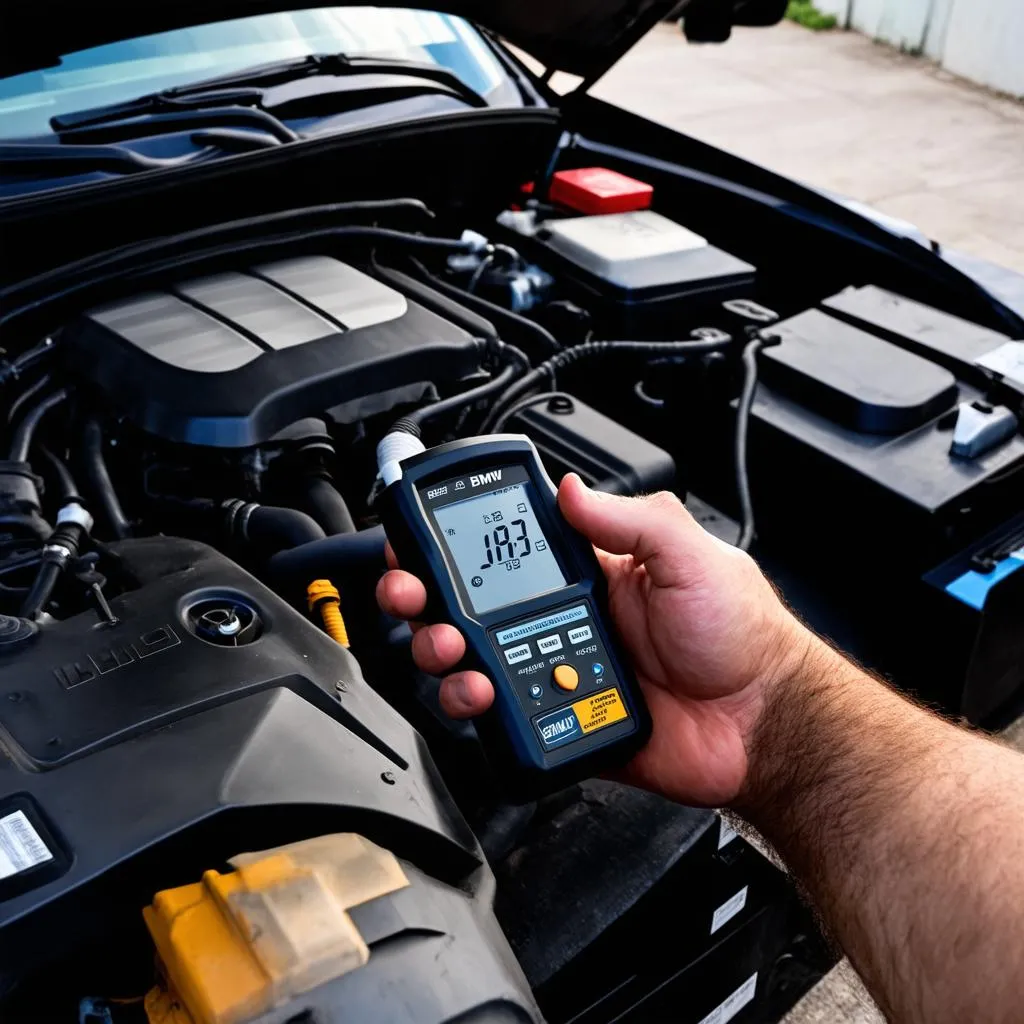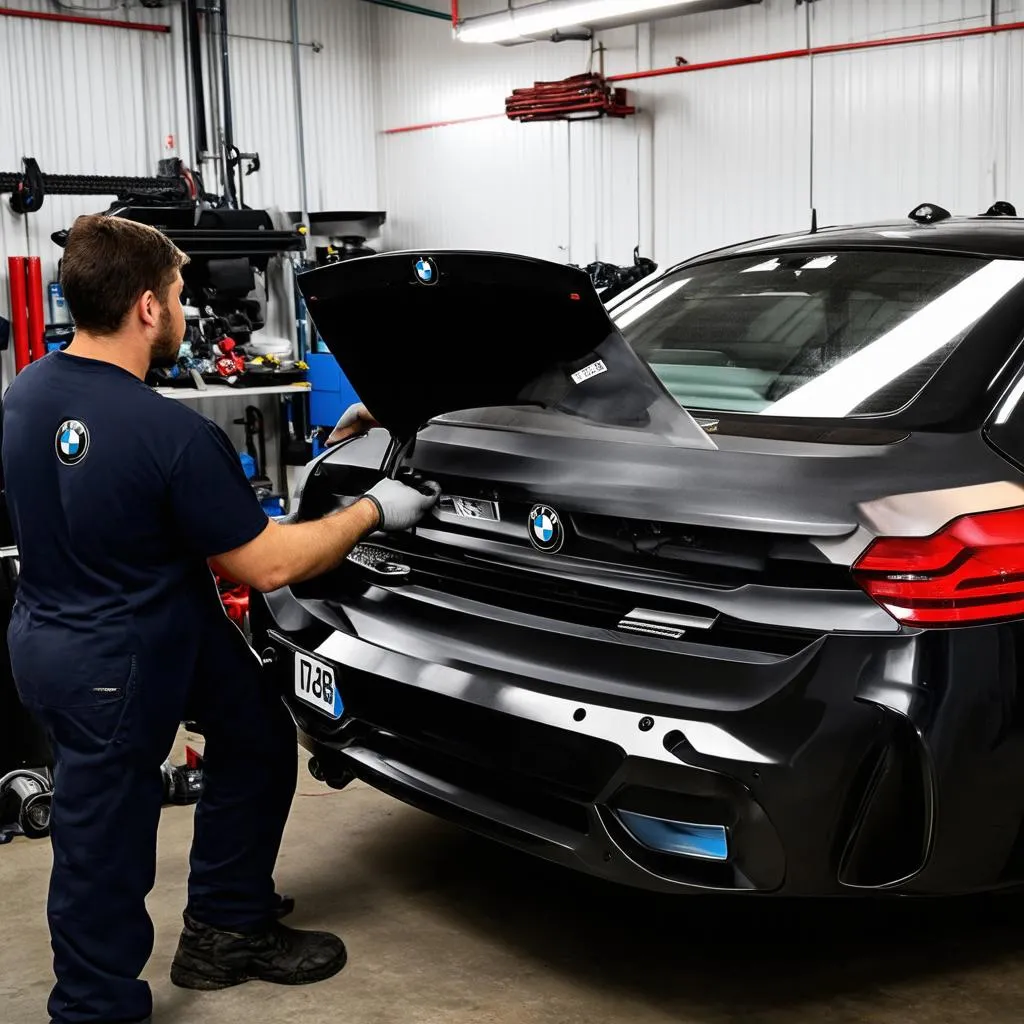BMW Rattling Noise When Accelerating: Causes, Diagnosis, and Solutions
Ever heard a concerning rattling sound coming from your BMW while accelerating? You’re not alone. It’s a common issue that can range from a minor annoyance to a serious problem.
But don’t fret! This article will guide you through the potential causes, diagnostic steps, and solutions for that troublesome BMW rattling noise.
What Does a BMW Rattling Noise Mean?
A rattling sound during acceleration can be a sign of various issues related to the drivetrain, engine, or suspension. It can stem from loose components, worn parts, or even an underlying mechanical malfunction.
What’s the Psychological Impact of a Rattling BMW?
Let’s be honest, hearing a strange noise from your beloved BMW can be unsettling. It can trigger anxiety and a sense of dread. It’s important to remember that a rattling noise doesn’t necessarily indicate a catastrophic failure. However, it’s crucial to address the issue promptly to prevent further damage and ensure your safety.
BMW Rattling Noise: An Expert’s Perspective
“A rattling sound during acceleration can be traced back to a number of components,” says Dr. Johannes Schmidt, a renowned automotive engineer and author of “The Complete Guide to BMW Diagnostics.” “It’s essential to pinpoint the exact source of the noise for a proper diagnosis and repair.”
The Economic Impact of a Rattling BMW
Ignoring a rattling noise can lead to significant financial consequences. A minor issue left unchecked can escalate into a major problem requiring costly repairs.
Common Causes of BMW Rattling Noise When Accelerating
1. Exhaust System
A rattling noise during acceleration can often be attributed to a loose heat shield or a broken catalytic converter.
- Loose Heat Shield: The heat shield is designed to protect surrounding components from excessive heat generated by the exhaust system. A rattling sound could indicate that the heat shield has become loose or damaged, allowing it to vibrate against the exhaust pipe.
- Broken Catalytic Converter: A damaged catalytic converter can create a rattling noise when the engine is under load, particularly during acceleration.
2. Engine Components
- Engine Mounts: Engine mounts are responsible for isolating the engine from the chassis and reducing vibrations. Worn or damaged mounts can lead to excessive engine movement, resulting in a rattling noise.
- Timing Chain: The timing chain is a critical component that ensures the correct timing of the engine’s valves. A stretched or worn timing chain can create a rattling noise, particularly during acceleration.
- Valvetrain: The valvetrain consists of components such as valves, lifters, and pushrods. Worn or damaged valvetrain components can generate a rattling noise.
3. Suspension Components
- Ball Joints: Ball joints connect the steering knuckles to the suspension control arms. A rattling sound when accelerating could be caused by worn or damaged ball joints.
- Control Arms: Control arms are essential for maintaining the proper alignment of the wheels. Worn or damaged control arms can contribute to a rattling sound during acceleration.
Diagnosing the Source of the Rattling Noise
Pinpointing the exact source of the rattling noise is crucial for accurate diagnosis and repair. Here are some steps to help you narrow down the cause:
- Listen carefully to the noise: Try to identify where the sound is coming from – is it from the engine compartment, the rear end, or the front suspension?
- Observe the noise’s intensity: Does the noise intensify when you accelerate or change gears?
- Check for visual clues: Look under the hood for any loose or damaged components. Inspect the exhaust system, engine mounts, and suspension components for signs of wear or damage.
Addressing the Rattling Noise: Solutions
Once you’ve determined the source of the rattling noise, you can take appropriate action.
1. Exhaust System
- Tighten or Replace Loose Heat Shield: If the heat shield is loose, you can try tightening the bolts or replacing it if it’s damaged.
- Replace Catalytic Converter: A broken catalytic converter needs to be replaced.
2. Engine Components
- Replace Worn Engine Mounts: If the engine mounts are worn, they will need to be replaced.
- Inspect Timing Chain: If the timing chain is stretched, it may need to be replaced.
- Check Valvetrain: Worn valvetrain components may need to be repaired or replaced.
3. Suspension Components
- Replace Ball Joints: If the ball joints are worn, they will need to be replaced.
- Repair or Replace Control Arms: Worn or damaged control arms may need to be repaired or replaced.
Frequently Asked Questions
-
Q: Can I ignore a rattling noise in my BMW?
A: While a rattling noise might seem insignificant, it’s best to address it sooner rather than later. Ignoring it could lead to further damage and costly repairs.
-
Q: How much does it cost to fix a rattling noise in a BMW?
A: The cost of repairs can vary significantly depending on the source of the noise and the complexity of the repair.
-
Q: Can I diagnose the rattling noise myself?
A: While you can inspect the car for visual clues, it’s highly recommended to take it to a qualified mechanic for a proper diagnosis.
-
Q: What are some common brands of diagnostics tools for BMWs?
A: Some popular brands include ICOM, Carly, and AutoDoctor.
Related Articles
- BMW Check Engine Light: Causes and Solutions
- BMW Diagnostic Tools: A Comprehensive Guide
Products
- ICOM Diagnostic Tool
- Carly Diagnostic App
- AutoDoctor Diagnostic Scanner
Supported Vehicles
- BMW 3 Series
- BMW 5 Series
- BMW X3
- BMW X5
- BMW X7
Need Help?
Don’t hesitate to contact us via Whatsapp: +84767531508 if you need assistance with diagnosing or fixing a rattling noise in your BMW. Our team of expert mechanics is available 24/7 to help you get back on the road.
Final Thoughts
A rattling noise in your BMW can be a cause for concern, but it’s important to remain calm and take appropriate steps to address the issue. By understanding the potential causes, following the diagnostic steps, and implementing the recommended solutions, you can restore your BMW to its optimal condition and enjoy a smooth ride once again.
Remember, prevention is key. Regular maintenance can help prevent rattling noises and keep your BMW running smoothly for years to come.
Do you have any questions about BMW rattling noises? Share your experience in the comments below!
 BMW rattling noise
BMW rattling noise
 BMW diagnostic tools
BMW diagnostic tools
 BMW repair shop
BMW repair shop
